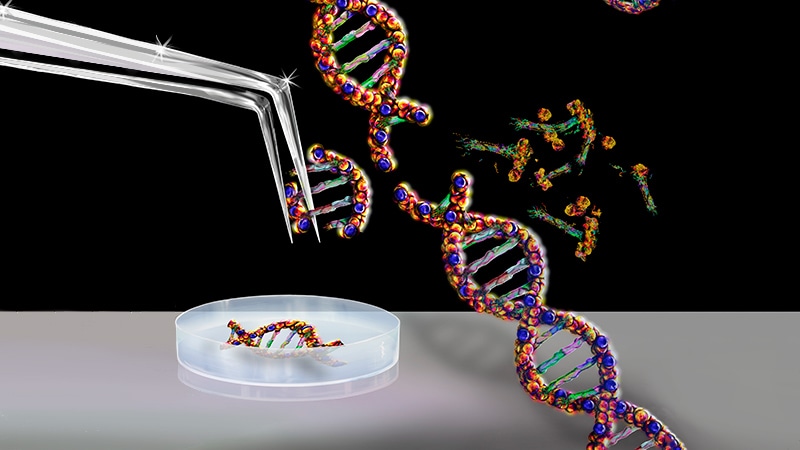核心概念
Casgevy, a gene editor, receives conditional approval in the EU for treating blood diseases.
摘要
The European Medicines Agency (EMA) has recommended conditional marketing authorization for Casgevy, a gene editor, to treat transfusion-dependent beta-thalassemia and severe sickle cell disease in patients 12 years or older. Casgevy utilizes CRISPR/Cas9 technology to edit stem cells ex vivo, aiming to provide functioning hemoglobin and reduce the need for frequent transfusions. Trials have shown promising results, with a high percentage of patients remaining transfusion-free for extended periods. Safety concerns are being monitored, and further research is needed to fully understand the therapy's efficacy and long-term effects.
EU Conditional Approval: Gene Editor to Treat Blood Diseases
統計資料
Casgevy recommended for beta-thalassemia and sickle cell disease
93% of beta-thalassemia patients remained transfusion-free for over a year
97% of sickle cell disease patients were free of vaso-occlusive crises for at least 12 months
Common side effects include low white blood cell counts, low platelet levels, and liver disease
引述
"The benefits of Casgevy outweigh the possible risks."
"Casgevy has the potential to reduce the burden of frequent transfusions and improve the quality of life in patients with blood disorders."
從以下內容提煉的關鍵洞見
by Shrabasti Bh... 於 www.medscape.com 12-18-2023
https://www.medscape.com/viewarticle/eu-conditional-approval-gene-editor-treat-beta-thalassemia-2023a1000vqg
深入探究
What are the potential ethical implications of using gene editing technology in medical treatments?
Gene editing technology in medical treatments raises several ethical considerations. One major concern is the potential for unintended consequences or off-target effects when modifying the genetic code of patients. This could lead to unforeseen health issues or genetic mutations that may be passed on to future generations. Additionally, there are concerns about the equitable access to gene editing treatments, as they can be expensive and may not be accessible to all patients. Questions of consent and autonomy also arise, as patients need to fully understand the risks and benefits of gene editing therapies before consenting to treatment. Furthermore, there are broader societal implications, such as the potential for genetic enhancement and the ethical boundaries of altering human DNA.
How might the availability of Casgevy impact the current healthcare infrastructure for treating blood diseases?
The availability of Casgevy could have a significant impact on the current healthcare infrastructure for treating blood diseases. As a one-time cellular therapy using CRISPR/Cas9 technology, Casgevy has the potential to reduce the burden of frequent transfusions and improve the quality of life for patients with beta-thalassemia and sickle cell disease. This could lead to a shift in treatment paradigms, moving away from traditional stem cell or bone marrow transplantation methods that require finding suitable donors and specialized care facilities. The introduction of Casgevy could also necessitate changes in healthcare delivery systems to accommodate the unique requirements of gene editing therapies, such as specialized training for healthcare providers and infrastructure for genetic testing and monitoring of patients post-treatment.
How can the long-term follow-up of patients treated with Casgevy contribute to advancements in gene therapy research?
The long-term follow-up of patients treated with Casgevy is crucial for advancing gene therapy research in several ways. By tracking the effectiveness and safety of Casgevy over a 15-year period, researchers can gather valuable data on the long-term outcomes of gene editing treatments for beta-thalassemia and sickle cell disease. This information can help improve the understanding of the durability of treatment effects, potential side effects, and overall patient outcomes. Additionally, long-term follow-up studies can provide insights into the mechanisms of action of gene therapies, the persistence of modified cells in the body, and any potential late-onset effects. The data collected from these follow-up studies can inform future research efforts, contribute to the development of new gene editing technologies, and enhance the overall safety and efficacy of gene therapy treatments.
0
